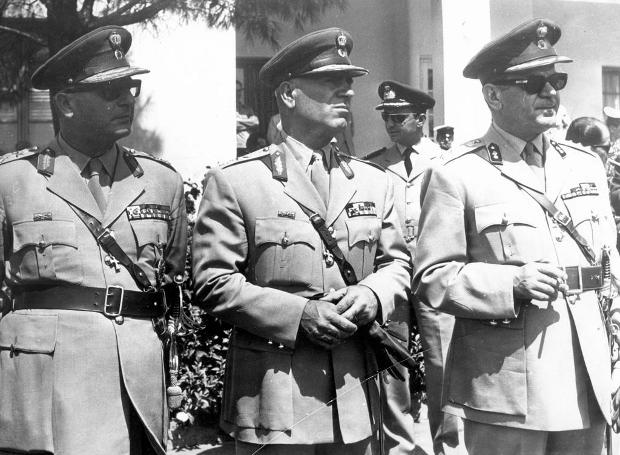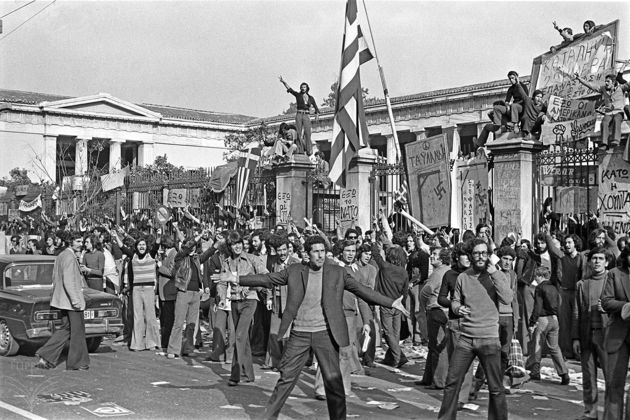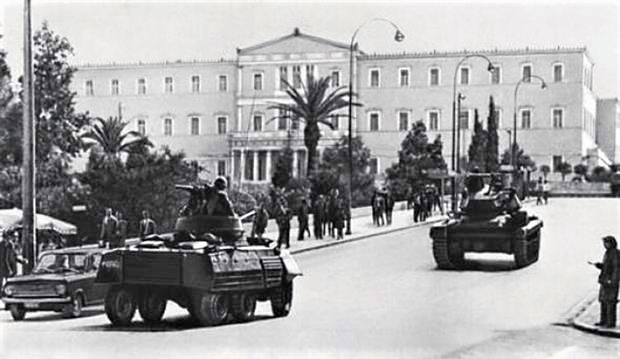On the morning of April 21st, 1967, Greeks woke up to a nightmare: the ominous rumble of tanks, occasional rifle shots and military hymns playing on the radio. Then came the sinister announcement on the radio: “The Hellenic Armed Forces undertake the governance of the country.”
What followed was seven years of dictatorship under Colonel Georgios Papadopoulos.
Seven years of oppression:
After the coup, more than 10,000 politicians, intellectuals and ordinary citizens, who belonged to Greece’s Left, were arrested in a methodical manner. They were sent to prison or to the Yaros island concentration camp.

Freedom of speech ceased to exist, with strict censorship rules instituted for radio, newspapers and, later, television.
At the same time, many Greeks became informants to the police, spying on their neighbors. Anyone could get arrested if someone told the police that the “culprit” had spoken badly about the colonels and the regime.
The uprising:
In 1973, Colonel Papadopoulos decided to call elections. Many Greek people believed they would be democratic elections but once it became clear that they would not be, the uprising of the Polytechneio occurred.
A few hundred students, fed up with the repression of the regime, occupied the building of the National Technical University of Athens and called for the colonels to leave power. Several people died when the premises of the university were brutally cleared out by the military.

But the turmoil did give Colonel Dimitrios Ioannidis a chance to topple Papadopoulos on November 25, with yet another coup. His ambitious plan to overthrow the President of Cyprus, so that Greece and Cyprus could unite, caused the Turkish invasion of the island on July 20, 1974.
Only three days later, Ioannidis resigned, finally opening the way for Constantine Karamanlis to return to Greece and form a democratic government.
The nightmarish seven-year long dictatorship of the colonels had finally ended for Greece, but the plight of Cyprus had only begun as the northern part of the island is still occupied by Turkey to this day.
